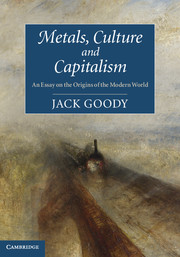Book contents
- Frontmatter
- Contents
- Maps
- Plates
- Preface
- Acknowledgements
- Chronology
- Part I Explorers
- 1 The Age of Metals in the Ancient Near East
- 2 A Bronze Age without bronze
- 3 Metals and society
- 4 Trade and religion in the Mediterranean
- 5 The coming of the Iron Age and classical civilisation
- 6 After the Romans
- Part II Merchants
- Part III Accumulators
- Appendix 1 The metallurgy of iron
- Appendix 2 Damascene steel and blades
- Glossary (with the aid of J. A. Charles)
- Bibliography
- Index
- Plate section
1 - The Age of Metals in the Ancient Near East
Published online by Cambridge University Press: 05 June 2014
- Frontmatter
- Contents
- Maps
- Plates
- Preface
- Acknowledgements
- Chronology
- Part I Explorers
- 1 The Age of Metals in the Ancient Near East
- 2 A Bronze Age without bronze
- 3 Metals and society
- 4 Trade and religion in the Mediterranean
- 5 The coming of the Iron Age and classical civilisation
- 6 After the Romans
- Part II Merchants
- Part III Accumulators
- Appendix 1 The metallurgy of iron
- Appendix 2 Damascene steel and blades
- Glossary (with the aid of J. A. Charles)
- Bibliography
- Index
- Plate section
Summary
Although the early stages of mankind are defined by the materials from which tools and other objects are made (stone, copper and its alloy, bronze, and iron), all derived from the earth’s surface, we do not always think sufficiently about the effects that these materials have had on human life, especially metals in their distribution and in the technology of their production, let alone in their uses. We speak of the Bronze Age which arose fully around 3000 bce without giving sufficient thought to where that material came from – there was little enough metal on the riverain sites of the Near East where the ‘age’ originated. Nor do we think that, in speaking of the Iron Age, it was not the discovery of iron, which was known long before, but its widespread use by the Hittites and urban societies of Crete, Greece and Rome that marked the beginning of its effective influence. And even then there was all the difference between the simple iron-making found earlier on and which diffused throughout Africa, and that which developed in Eurasia, especially in India, in China and later on in modern Europe.
The Bronze Age in most cases was preceded by the Chalcolithic, the Copper Age, which used the same metal but mostly in its ‘raw’ state, often without any casting, but worked by hammering. The question of the origins of metallurgy in the Old World (see Appendix 1) has been much discussed and a recent study concludes that this began around the eleventh to ninth millennium bce in South West Asia due to ‘a desire to adorn the human body . . . using colourful ores and naturally-occurring metals’. That may well be the case; experimentation with coloured stones was certainly important. But what is more important for human history is the deliberate use, the casting or manufacturing of metal tools and weapons, which had so many implications for the creation of complex cultures. That aspect seems more closely linked to the use of kilns for pottery and eventually to the control of fire. Not that beads were without such implications but if they could be said to have ‘developed’ at all, it was not in the same way or with such important results for the human race.
- Type
- Chapter
- Information
- Metals, Culture and CapitalismAn Essay on the Origins of the Modern World, pp. 3 - 32Publisher: Cambridge University PressPrint publication year: 2012



